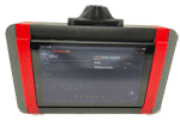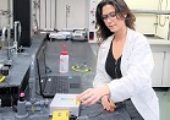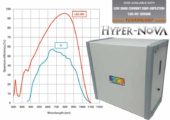F Makiyan, F Rahimi, M Hajati, A Shafiekhani… – Colloids and Surfaces B …, 2019
Abstract
Phenotypic variation – such as disease susceptibility and differential drug response – has a strong genetic component. Substantial effort has therefore been made to identify causal genomic variants explaining such variation among humans. Point mutations (PMs), which are single nucleotide changes in the genome, have been identified to be the most abundant form of causal genomic variants, making them useful, reliable diagnostic markers. Methods developed to genotype PMs have moved towards solid-phase assays, which not only show greater sensitivity and specificity, but also enable scalability and faster processing time. Most current assays are, however, based on fluorescent probes, which makes them relatively expensive. To develop a more cost-effective label-free genotyping method, we used a porous silicon (PSi) base as an efficient support for DNA biosensing and coupled it with reflectometric interference Fourier transform spectroscopy (RIFTS). To assess the versatility of this approach, we tested both a single nucleotide substitution in VKORC1 (-1639G > A; rs9923231) and a single nucleotide insertion in BRCA1 (5382insC; rs80357906). We demonstrate that the PSi-RIFTS method can efficiently detect both PM types with high sensitivity where hybridization of complementary DNA can be quantifiably differentiated from mismatch and non-complementary hybridization events. In addition, we show that the PSi base with immobilized DNA not only can be re-used to type further samples, but it also remains stable for 14 days, suggesting its potential for high-throughput applications.

… fibre. A collimator was then used to collect the reflected beams using an objective lens coupled with a multimode fibre directed into a spectrophotometer (EPP2000-HR, StellarNet, USA) at a spectral resolution of 0.5 nm. The …





